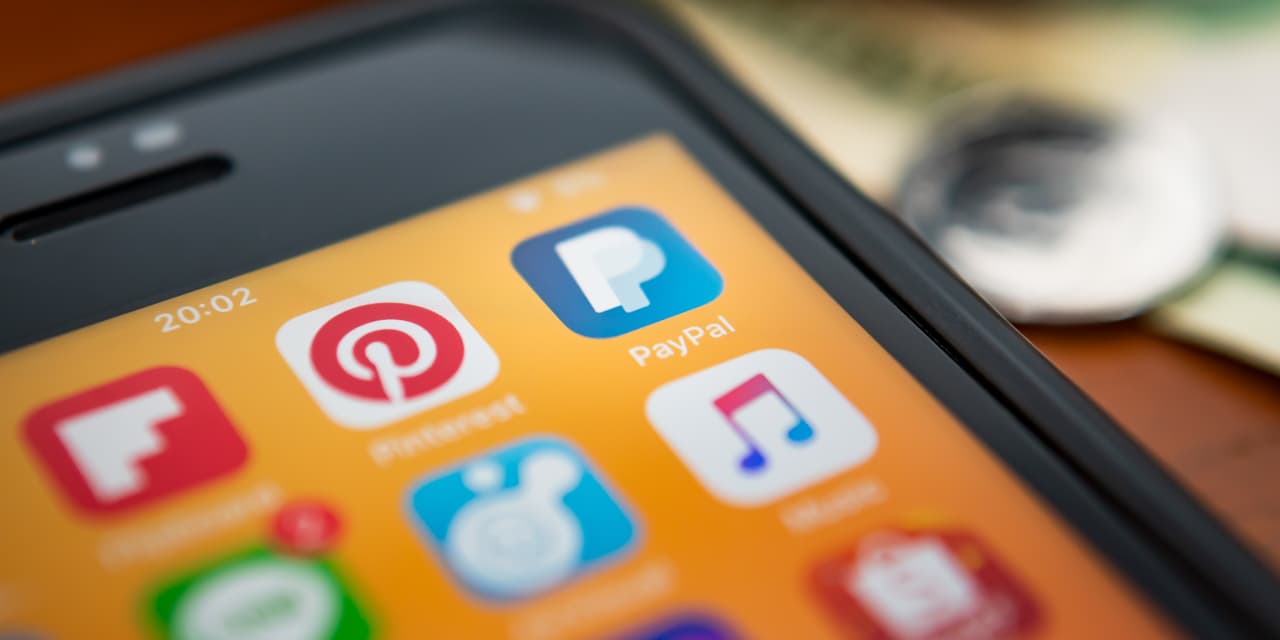For the first time, the majority of Wall Street analysts covering PayPal Holdings Inc. shares are feeling skeptical.
Mizuho’s Dan Dolev downgraded PayPal’s stock
PYPL,
to neutral from buy Tuesday, bringing the number of analysts with hold-equivalent ratings to 23. Factoring in that one of the 47 analysts covering PayPal’s stock has a sell-equivalent rating, buys no longer constitute the majority of ratings, according to monthly FactSet data.
See also: PayPal’s stock starts the new year with sustained skepticism
PayPal’s stock used to be an overwhelming fan favorite on Wall Street: In early 2020, nearly 90% of analysts covering the stock were bullish. But the stock has seen a sharp fall from grace in recent years and currently trades 80% below its all-time high amid concerns about competition and margins.
“Our data suggests that market share loss to Apple Pay looks increasingly challenging,” Dolev wrote in his downgrade. “We also worry about an emerging age-demographic problem, as younger cohorts in the U.S. gravitate towards newer payment methods like Apple Pay, auto-fill, and BNPL,” or buy-now-pay-later.
PayPal historically has done well with desktop checkout, according to Dolev, but the company isn’t as strong on mobile, where more consumers are making purchases these days. Apple Inc.’s
AAPL,
Apple Pay, meanwhile, has a better position on mobile than on desktop.
Shares of PayPal were off 1.4% shortly after Tuesday’s open.
PayPal owns Venmo, which Dolev says has “has long been considered the crown jewel” of peer-to-peer payments in the U.S. But Venmo, too, faces competitive pressures from the likes of Zelle, and he noted that PayPal seems to be having trouble improving Venmo’s monetization profile.
Don’t miss: Mastercard crosses $400 billion market-cap level in a sign of spending resilience
Venmo’s core customer “is likely receiving financial services from traditional banks,” Dolev wrote, whereas Block Inc.’s
SQ,
rival Cash App product skews more toward customers who are in need of such services.
Dolev also highlighted the margin challenges PayPal has been facing lately. The company is seeing its lower-margin unbranded checkout product make up a greater portion of the overall business, which Dolev said could continue to pressure gross profit.
Read the full article here




